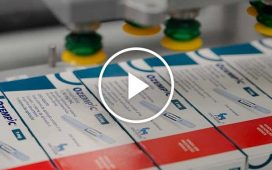Senate Majority Leader Charles E. Schumer’s gamble on infrastructure failed Wednesday, handing the New York Democrat his first major legislative defeat since his party took control of the chamber this year.
In a party-line vote, the motion to begin debate on the nascent $1.2 trillion infrastructure package was defeated by a Republican filibuster. The majority leader’s rout was entirely self-inflicted.
“He was too eager for a win,” said a senior Republican aide close to the bipartisan talks on the deal, which are continuing. “The majority leader tried to strong-arm Republicans, who have been out there defending the deal publicly, to vote for it even though it was unfinished.”
Although Mr. Schumer has come up short in the past, most notably in June on an electoral overhaul favored only by Democrats, infrastructure is different.
The deal, which is the product of an eclectic mix of moderate lawmakers — five Democrats and five Republicans — has significant bipartisan support. It is also widely popular because of its subject matter: fixing the nation’s roads, bridges, seaways and airports.
Under normal circumstances, the package should have received enough support from Republicans to overcome a filibuster.
“We have enough Republicans, 10 or 12 Republicans that are supportive of going on the bill,” said Sen. Mitt Romney, Utah Republican and one of the bipartisan lawmakers behind the deal.
Mr. Schumer, however, attempted to rush a vote before lawmakers finished writing the legislation. Mr. Romney and a select group of moderates from both parties worked late into the night Tuesday attempting to finalize the package.
“They’re talking about big projects and big sums of money,” said Senate Minority Leader Mitch McConnell, Kentucky Republican. “But these discussions have yet to conclude. There’s no outcome yet, no bipartisan agreement, no text, nothing for the congressional budget office to evaluate, and certainly nothing on which to vote, not yet.”
A particular sticking point has been on how to finance all of the construction projects without raising taxes. The bipartisan group of senators proposed that more than $570 billion of the overall package come from new revenue and the rest from repurposed coronavirus relief funds.
Mr. Romney said most of the issues on how to pay for the projects were being resolved. The final deal just needed more time to come together.
Lawmakers had urged Mr. Schumer to postpone the vote until early next week.
“I can’t predict, but we’ll have the agreement, in my view, completed over the weekend,” Mr. Romney said.
Mr. Schumer, though, was not content to wait.
“I have been very clear about what this vote is,” the majority leader said. “This vote is only the first step in the legislative process. … It is not a deadline to have every final detail worked out. … The bipartisan group of senators will have many opportunities to make their agreement the base of the bill, even if they need a few more days to finalize the language.”
The majority leader’s hardball tactics underscore the political and practical concerns facing Democrats.
Congress has less than two weeks before its monthlong recess. Letting Republicans leave Capitol Hill before taking an initial vote in support of the package would likely doom the entire deal.
Democrats fear that sending Republicans home without going on record in favor of the deal would bleed away supporters. Vulnerable Republicans are likely to face pressure from constituents, advocacy groups and grassroots conservatives to oppose the deal.
When Congress returns, it must pass the annual spending bills needed to keep the government running past the end of the budget year on Sept. 30. Allowing the infrastructure deal to become mired with such vital legislation could force Mr. Schumer to trade one to get the other.
Mr. McConnell predicted Tuesday that Republican lawmakers would oppose raising the federal debt ceiling in the fall.
Complicating matters is that Mr. Schumer has pledged to move the infrastructure package in tandem with a $3.5 trillion social welfare bill.
The bigger legislation, which is packed with liberal priorities, is set to pass without Republican votes in a process known as budget reconciliation, which allows some spending and tax measures to avoid the 60-vote threshold needed to get past a filibuster and pass with 51 votes.
Some Democrats are already calling for combining the reconciliation bill and the infrastructure deal to save time and reduce potential opposition.
“Senate Republicans just blocked the bipartisan infrastructure package from moving forward,” said Sen. Jeff Merkley, Oregon Democrat. “Democrats must pass a big, bold bill via budget reconciliation.”








